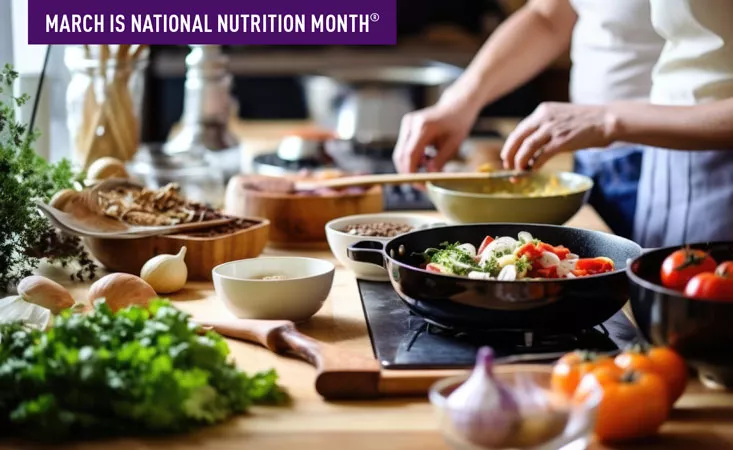
Food provides comfort and joy – it connects us with our culture and with our loved ones. For people with pancreatic cancer, finding meals that nourish both the body and the soul is important. And it can be a challenge. Poor appetite, changes in the way food tastes, nausea and other gastrointestinal issues mean once-favorite meals may be difficult to eat or no longer the best choice.
For caregivers, it’s not always easy to find foods that are both healthy and appetizing. Depending on a person’s specific needs – whether it’s post-surgery, during chemotherapy or along the path to long-term recovery, meal planning may require experimentation, different approaches and ongoing communication about changing needs.
Every person’s situation is unique when it comes to nutrition. PanCAN is here to help. While our Case Managers can answer questions and provide personalized support, here are some overall tips and tools for people with pancreatic cancer and their caregivers as they navigate diet and nutrition.
Tip #1: Try different cooking methods and substitute ingredients
Baking, roasting or poaching meat can be good alternatives to methods like grilling or frying that can make food more difficult to digest. Using soy products like tofu, soy milk or edamame can retain the integrity of a dish while minimizing any adverse effects from dairy such as gas, bloating or diarrhea. Steaming vegetables helps to retain nutritional value and alleviates symptoms related to gastric reflux.
Tip #2: Experiment with new recipes
Explore recipes on the PanCAN website that were created with pancreatic cancer patients in mind. Another resource: USDA My Plate, a website from the U.S. Department of Agriculture, that offers healthy meal options from around the world. Their database is searchable by different cuisines, dietary requirements, preferred cooking equipment and more. Cookbook recommendations include:
- “The Cancer-Fighting Kitchen: Nourishing, Big-Flavor Recipes for Cancer Treatment and Recovery” by Rebecca Katz
- “The New American Plate Cookbook: Recipes for a Healthy Weight and a Healthy Life” by The American Institute for Cancer Research
- “Nuestra Cocina Saludable: Recipes from Our Community Kitchen. Institute for Health Promotion Research,” editor Dr. Amelie G. Ramirez
Contact PanCAN Patient Services and request our diet and nutrition booklet for additional cookbook recommendations.
Tip #3: Keep a food journal
Journaling is one way to identify issues that may be getting in the way of eating and drinking enough. It can also help caregivers communicate with their loved one about what they need. For seven-year survivor Nick Pifani, a journal helped to focus on what was working for him at various phases of his journey. “Nutritional needs can vary quite a bit from person to person in my experience. Keeping a daily journal of what you eat and how you feel helped me and my nutritionist refine my diet,” he said. “It took some time and patience, but the end result was a significant improvement in my overall health and wellbeing.”
Tip #4: Experiment with food presentation
Sometimes changing the approach to mealtimes can help. Place small bowls of nutritious snacks, such as nuts and fruit, in frequently used areas of the home to encourage healthy snacking between meals. Use a large plate and put small portions on it. By doing this, the amount of food may appear less overwhelming. Arrange food attractively by varying the colors on the plate or using garnishes such as lemon or lime wedges.
Tip #5: Talk with a dietitian about goals for nutrition and quality of life
It is important for patients with cancer to maintain a level of normalcy and that includes eating foods that they enjoy and that have cultural significance for them. It is possible to maintain the main ingredients of a traditional dish or meal, but with a few modifications to ensure the patient can tolerate them. PanCAN recommends consulting with a registered dietitian since each patient will have different nutritional needs. A dietitian who is familiar with cancer patients can conduct an evaluation and design a nutritional plan. PanCAN Patient Services can help find dietitians in different parts of the country.














